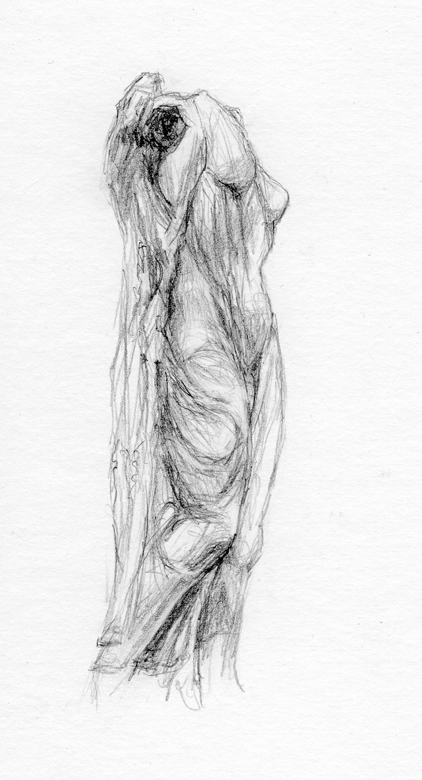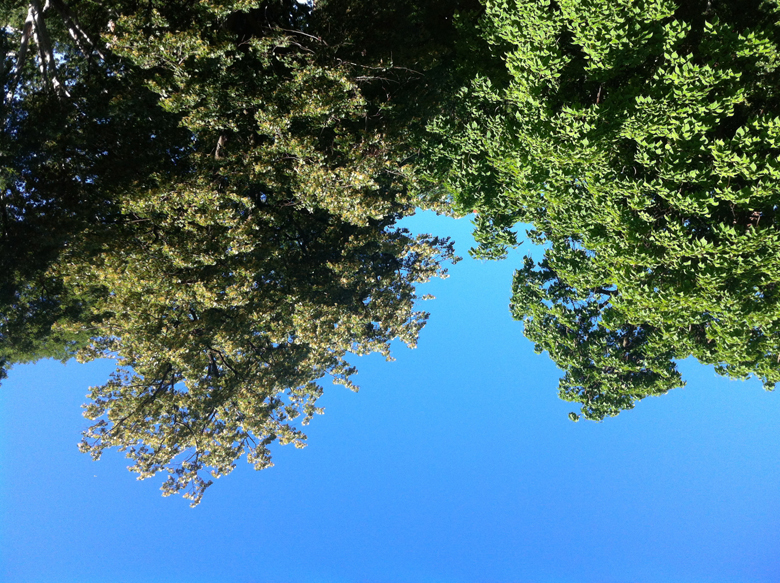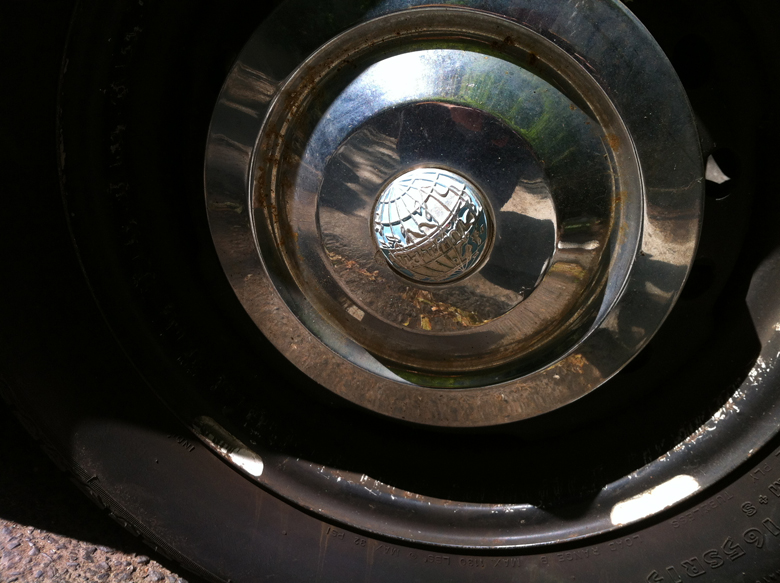CXI
Who is Phil, and why is he ossified?
Autonomous Jones
The Daze of our Lies: a classic
Dao for now
A bissel yin, a bissel yang…
On the other hand, once Created, one must be Saved.
Or, put slightly differently, the split that opens with Creation requires Salvation as (and at) its “end.”
And now it’s time to play…What’s My Urszene!
But first a word from out sponsor:
Did you know that you can cure oughtism with noughtism?
That’s right, and now, for a limited time only…
What you need is a nice warm cup of reality soup…
People for the Ethnic Treatment of Animals
Just because it says “restaurant” on the awning, doesn’t mean people are coming there to eat. Any waiter can tell you that.
Have you observed how easily we fall into contemptuous disrespect for one another at the first sign of any conflict, or even lacking one? And the flipside: unwonted familiarity and false identification, for example: the arresting officer, or telemarketing salesman calling you by your first name.
I reserve my belief in the astral world for spectral occasions
Anatomy of autonomy
If a beginning, was there a Word? Much less God?
Everything, even that which disrupts the course of things, ultimately finds its place within the course of things.
The basis of God as He has been handed down to us monotheists, is in dialogue – in the reciprocal address. The Word. Vox.
If you want phenomenal hangups, get hung up on the phenomenal
Can on really say that a state of exception exists within an all-encompassing reality?
Teeshirt on a l’il brown-haired kid: Karma Made Me Do It
I was a spiritual pivot for the Ma-fi-a
Promise the weak strength and have the strength of a thousand weak at your bidding.
Wrote William Carlos Williams in a book oncet.
A taxi driver is not the same as an ataxic driver, or a toxic driver, though these are by no means mutually exclusive…
Epoch fail
Bangin wit da bourgeoisie
The charge of the leitmotif
If your internal experience is one of coherence, you have no need to control others
And now, for sixty-four thousand dollars…
[drumroll]
Is it true that the last king of Pomerania was a Pomeranian?
I’m sorry, the last King of Pomerania was a Queen…
A good indication of one’s capacity for freedom is that one can take pleasure in the freedom of others.
Our story is just our story. It may be light as a feather, or heavy as lead.
The phenomenon of racism in this country is based on two unthinkable, therefore unsayable, precepts: first, that such a thing as white people exist. They do not, neither literally or metaphorically, but the idea of white people serves as the glue that binds American society together. The idea of white people is the necessary precondition for the idea of black people, with the resulting fear and hatred such a conjured-up Other engenders among those imagining themselves white.
The invention of white people was driven, in large measure, for the need to create a sense of commonality among people, including ever-increasing numbers of European immigrants, from widely diverse backgrounds and cultures. Whiteness also functioned as the key signifier of social status in a situation where class consciousness, and with it, the potential threat of class war, might have compromised the republic’s political integrity.
The second precondition for our national form of racism is the necessity to protect, at all cost, males of European descent, from the realization that they are the most insecure people on earth – the people who have structured social life around their underlying fear of powerlessness. This is why the presumptive “strongest” and “fittest” have found, and still find it necessary to monopolize as much of the world’s resources as possible and be the most heavily-armed.
If you think the above observations too facile, then let me ask: by what other means can one explain the durability of our particular brand of racism – so pernicious and chronic, able to maintain its invisible and intractable hold over so many minds? Even those “whites” who presumably support equal rights and socio-economic advancement for people of color cannot eradicate the racism that is grounded in the premises that have constructed a false self-identity, and an equally unreal Other. The long-term religious belief in the purity of white and sinfulness of black, along with chattel slavery in the South and the economic and social depredations faced by blacks in the industrial North certainly helped build a visible structure of racism atop an existing and far more psychologically entrenched foundation.
Racism may manifest through distinctions based on color, but its origins lie much deeper, beneath the threshold of what our culture permits itself to know.
Who is this Tam Poco and why is she so contrary?
Maynard G. Krebs: where have you gone?
Begin again, Gilligan
Trappings ‘r’ just that
The anxious mammals prefer their cages moving
I was a hashtag for the MTA
The Geek Interpreter
What winds must unwind
It was during the Enlightenment that Western philosophy built its house of descartes and things began to spinoza out of control.
Hateful the way upper-class Brits pronounce the word “assume.”
I know your kind is different from I know you’re kind.
The rupture: close the “u” and you get…
Our moment being, indeed, something like the Book of Revelation or even the Apocalypse. But it is all happening as the world wobbles on: the damned and the saved all go on living, walking, running, staggering, crawling, yet still, as though pushed by tidal forces into two distinct camps – a social rupture at the political and economic levels, certainly, but also, invisibly, in the realm of consciousness. Here, only the spirit shining out of certain eyes, and not others, or myriad signs of a person’s manifest gong fu, or lack, or perversion, thereof signify the split.
It is as though our species is so violently split we might be living on separate planets, and not breathing as we do, the common, only air.
Exceptional you may be, but you are not a state of exception.
Or exemption
In his extraordinary book The Country and The City, Raymond Williams traces both the historical transformation of England’s countryside via an analysis of contemporary literary representations of the changes in rural life. In one instance, Williams cites The Country Justice, an 18th Century poem by John Langhorne, in which absentee landlords, the merchant class as well as cruel and unfeeling bailiffs and other functionaries in charge of both ministering to and policing the poor and homeless, are taken to task as the primary cause of the great human suffering Langhorne witnesses and laments.
“Absentee landlords,” writes Williams, “of course, existed; and they are a class who, whatever they say, have always known what is being done, through and for them. But neither they nor the transplanted merchants can be isolated as the source of the drive to engross and enclose with all its consequent social rigors. The real process of transforming rural England was firmly in the hands of the all to present and commercially active landowners. And the real origin of change was the developing system of agrarian capitalism, which as has been characteristic of capitalism throughout its history, succeeded in transforming its environment in a dramatically productive way, by making both men and nature instrumental to a dominating purpose.
“Capitalism has in this sense always been an ambiguous process: increasing real wealth but distributing it unevenly; enabling larger populations to grow and survive, but within them seeing men only as producers and consumers, with no substantial claim on society except in these abstract capacities. There was thus a continuing contrast between the extraordinary improvement of the land and the social consequences of just this process, in the dispossessed and the vagrants, and the old, the sick, the disabled, the nursing mothers, the children who, unable to work in these terms, were seen as merely negative, an unwanted burden. To see the paradox of successful production and these human consequences would be to penetrate the inner character of capitalism itself. It was easier, for men like Langhorne, to separate the consequences from the system, and then to ascribe to social decay what was actually the result of social and economic growth.
“Of course to the extent that the new social system was itself becoming more successful, more pervasive and more confidently aggressive, there was always likely to be local basis for some kind of retrospective regret. In this place and that, in different ways, different times, could be actually remembered. But under the pressure of the general contradictions of the system this realistic local observation grew to a general historical outline, and then to a myth. The English landowning class, which had changed itself in a changing world, was idealized and displaced into an historical contrast with its own real activities. In its actual inhumanity, it could be recognized only with difficulty by men linked to and dependent on it, and the great majority of the poor and oppressed were without a connecting voice to make clear the recognition which was their daily experience. Thus a humane instinct was separated from society; it became a sympathy and a pity [self-pity today among many New York millionaires who are being forced out of the real estate game by billionaires and nameless pools of global capital] after the decisive social events. The real ruling class could not be put in question, so they were seen as temporarily absent, or as the good old people succeeded by the bad new people – themselves succeeding themselves. We have heard this sad song for many centuries now: a seductive song turning protest into retrospect, until we die of time.” [New York: Oxford University Press, 1973. pp. 82-83]
What Williams seems to be saying, in a nutshell, is that it is easier for someone with an interest – whether directly material or by identification with the ruling classes – to reprehend the social mechanisms in which they are implicated, than it is to comprehend them. Interest makes us, at least partially, blind. Which makes sense. Who, after all, wants to tell a bad story about one’s social function? Very few people have the stomach to be a John D. Rockefeller. But still, as Williams declares, this is a sad, sad Siren song. Or rather, a groove. On a broken record. Et donc, c’est la même chose.
There is a deal of difference between rent stabilization and renting a stable. If you don’t believe me, ask Mary, Joseph and Jesus.
White flight. As in Icarus.
After the decisive social events.
We are in the floodplain. Up there, obscured by roiling vapors, lie the headwaters of Property.
Wherefore look upstream, mon amour.
And, as in the fourth move of the Ba Gua sixty-four hands: Disperse the clouds to see the sun.
Triumph: equator of the world



